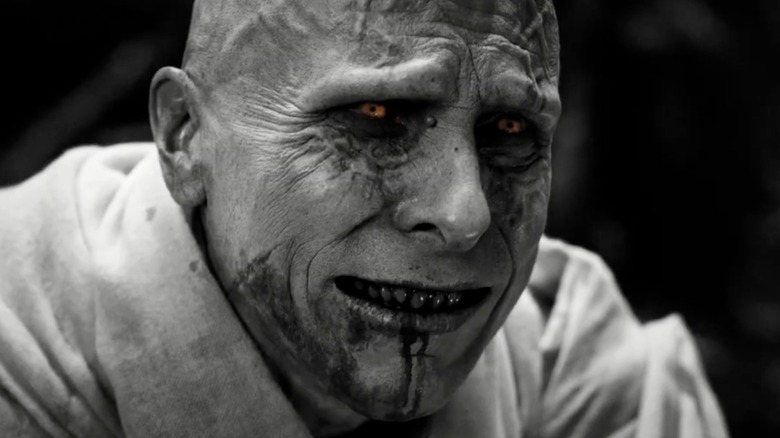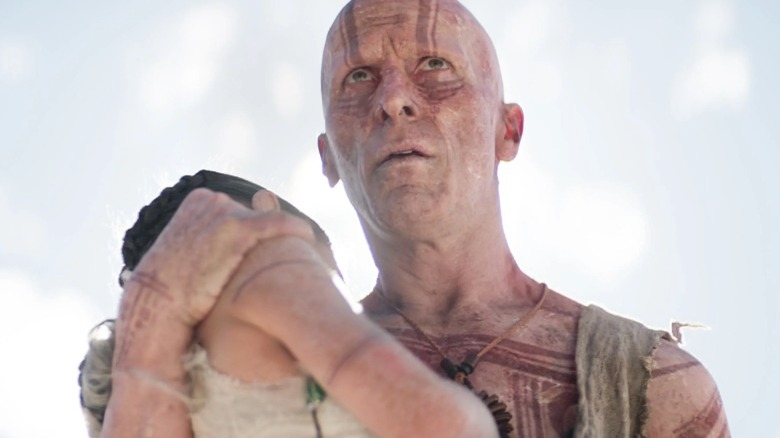Why Gorr From Thor: Love And Thunder Actually Had A Point
Not every superhero villain is pure evil. For a villain to be compelling, there has to be something about them that viewers can resonate with; for that reason, some villains' plights are surprisingly relatable. Killmonger (Michaell B. Jordan) in the first "Black Panther" movie is, arguably, justified in his plan to get weapons out to oppressed people worldwide. Ghost (Hannah John-Kamen) from "Ant-Man and the Wasp" is simply trying to stay alive in whatever way she can. Vulture (Michael Keaton) from "Spiderman: Homecoming" does get cheated out of his rightful claim by Tony Stark. And then, of course, there's Gorr.
Before Gorr the God Butcher (Christian Bale) became the primary antagonist in the film "Thor: Love and Thunder," he was introduced in the comics fairly recently in 2012 circa "Thor: God of Thunder" #2. In the comics, Gorr came from an unnamed planet, turning against the gods after his pregnant wife died during an earthquake, and his children gradually passed away. This is simplified in the film, and only the death of Gorr's daughter, Love (India Rose Hemsworth), is shown. The ordeal is made worse when Gorr asks the god Rapu (Jonny Brugh) for help, and Rapu mocks the man for worshiping him.
In either iteration, there's an argument fans can make that Gorr is one of the more justified villains in the Marvel canon.
The jury is out on Gorr
On an episode of the "The Villain Was Right" podcast, Chris Fay noted that the gods in the Marvel Cinematic Universe seem not to rule because they have powers but, rather, have obtained powers because they already thought of themselves as a caste above the ordinary people. Both hosts agreed that Gorr was justified in, at the very least, killing Rapu at the beginning of the movie and that the gods in the film seem to prove themselves to be selfish and uncaring towards mortals.
A 2016 thread in r/AskScienceFiction argued that the gods haven't intervened in many major disasters in the Marvel Comics Universe, and it's the same in the MCU. For example, during Loki's attack on New York in "Avengers," only Thor showed up, which could be considered more of a family obligation. Later, in "Avengers: Infinity War," more gods tried to intervene — mainly because the Asgardians had already relocated to Earth, and even then, the gods proved themselves to be poor defenders.
Still, not everyone is on Gorr's side, and one of the people who believe that Gorr wasn't justified was the actor who portrayed him in "Thor: Love and Thunder."
In an interview with ScreenRant, Christian Bale denounced Gorr's actions, saying, "No, we don't condone what he's doing. He's still a monster. ... He is a butcher, but you do have a confusing amount of potentially sympathy and certainly understanding of where he's coming from."

